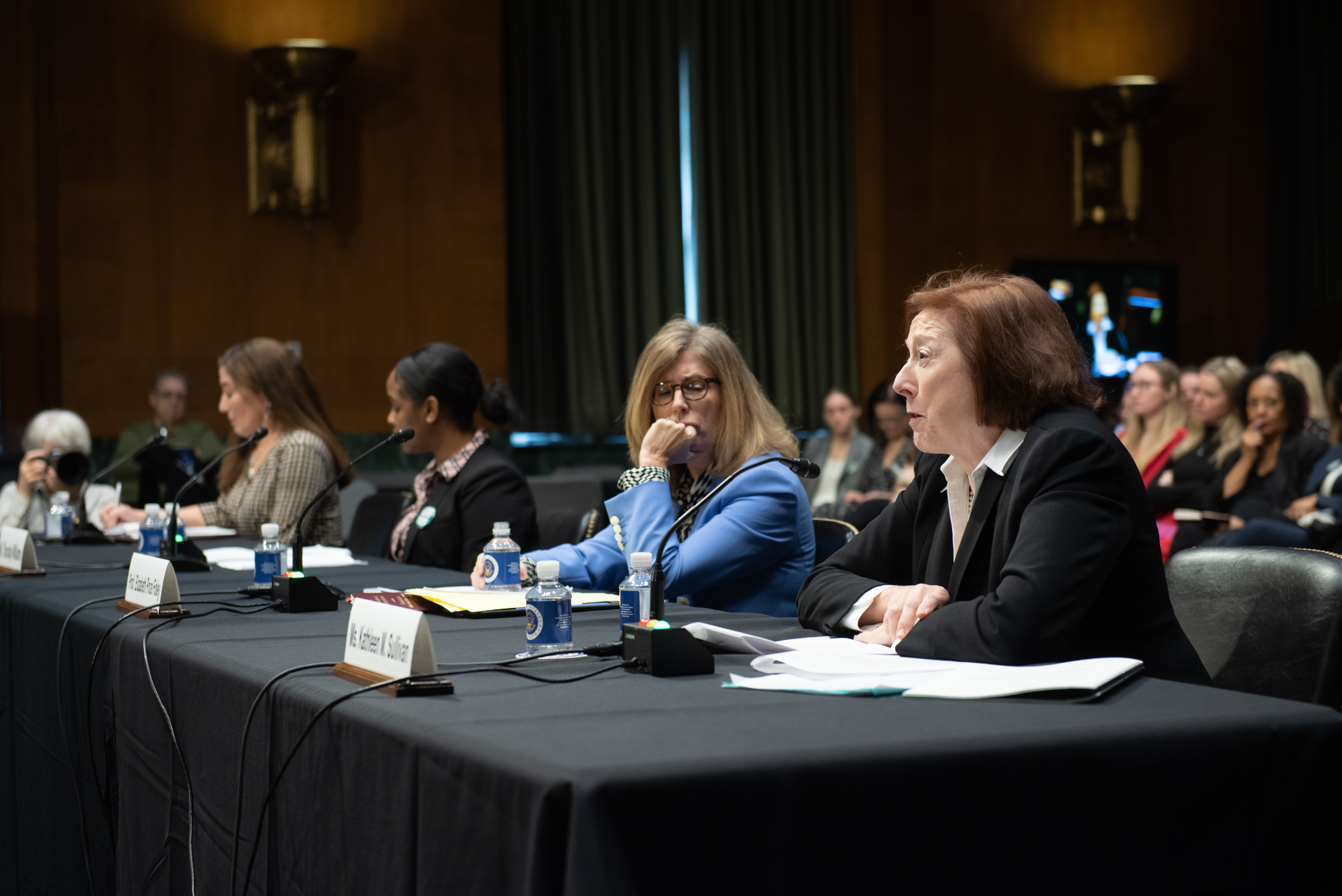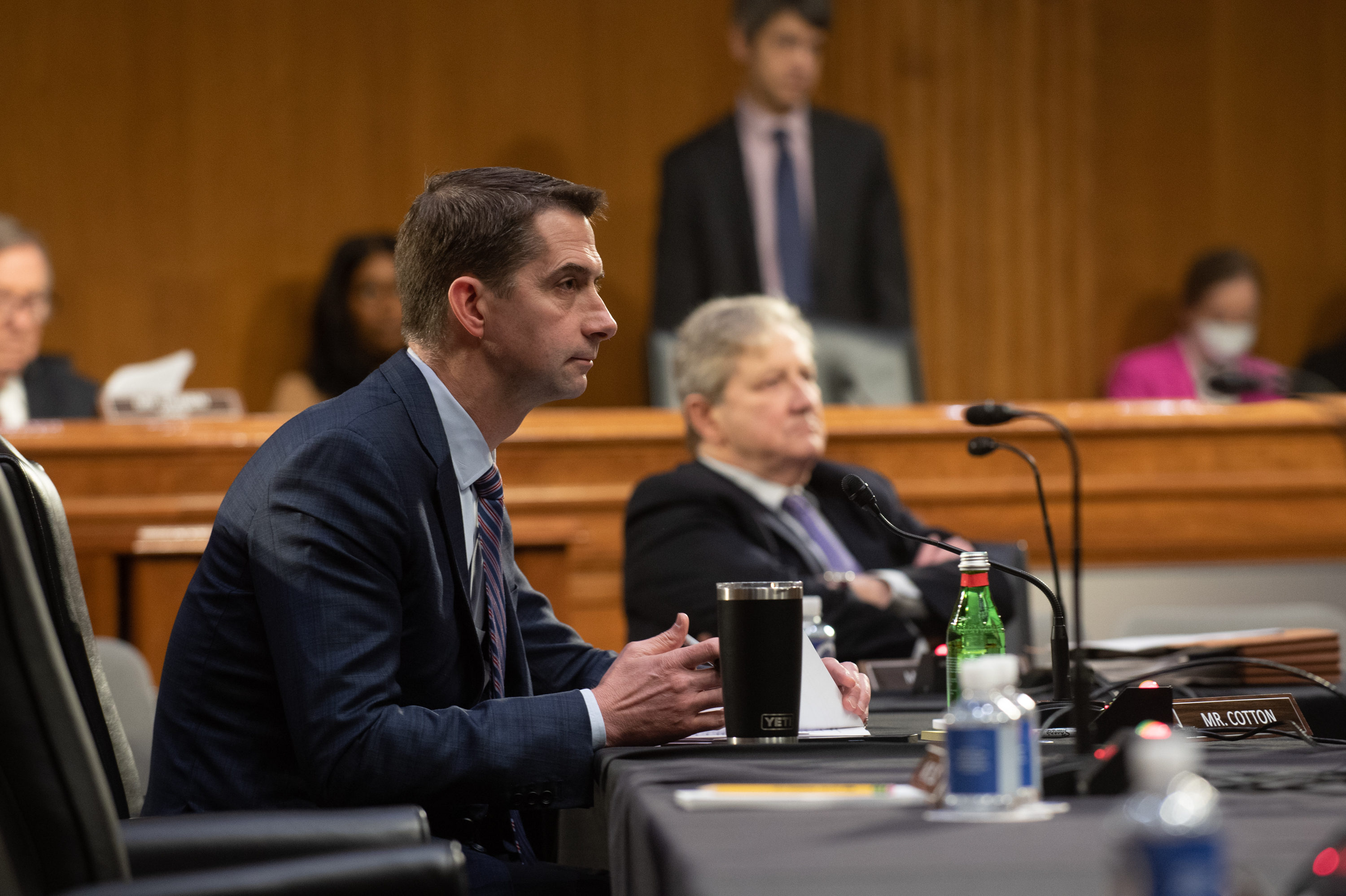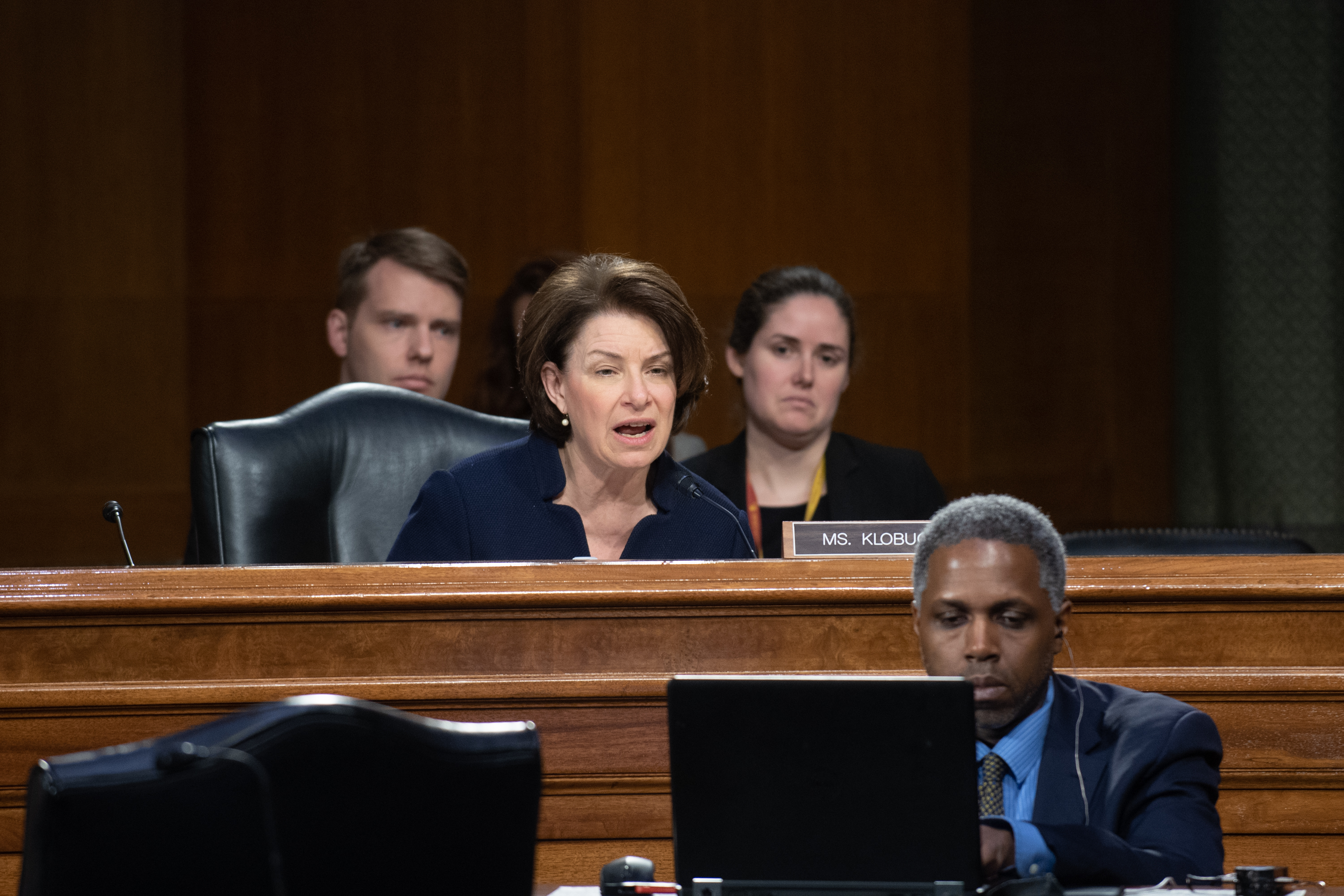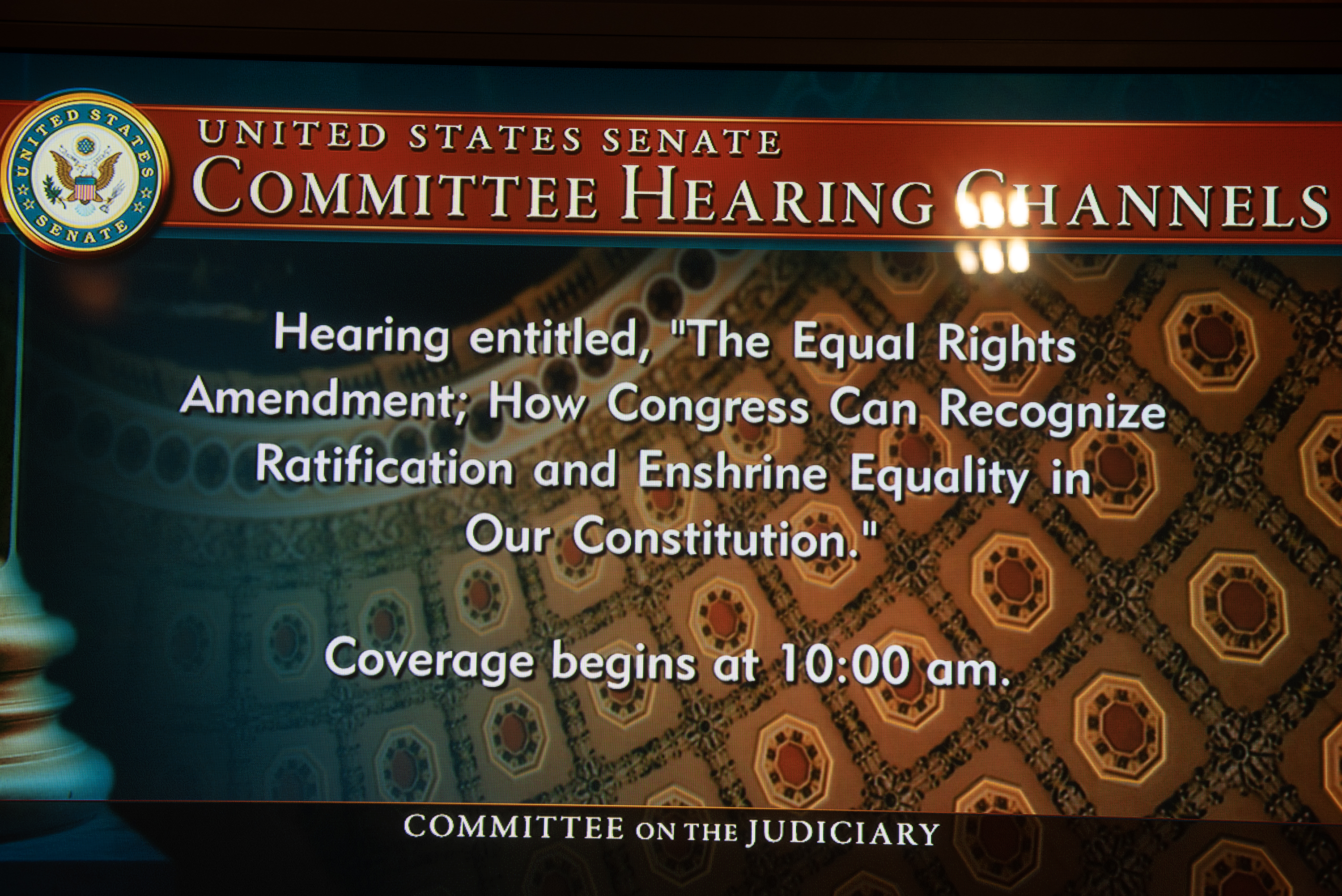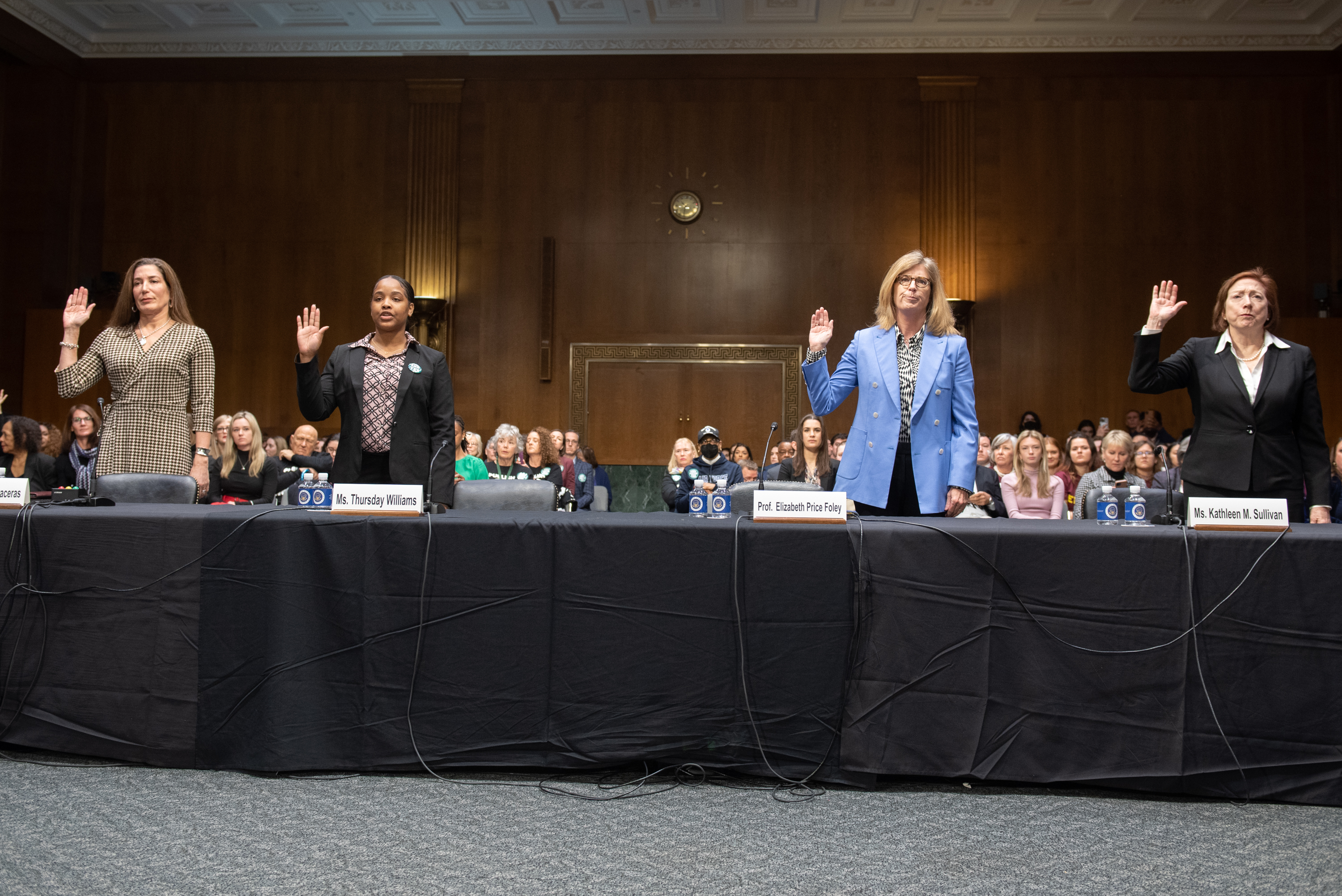Leveling the playing field with the ERA for Women in Sports
February 04, 2026
U.S. Senator Dick Durbin of Illinois opened today’s hearing, explaining that we are here today to hold a hearing on a resolution that would finally affirm the validity of the Equal Rights Amendment as an amendment to the United States Constitution.
“Equality of rights under the law shall not be denied or abridged by the United States or by any State on account of sex.”
Text of the Equal Rights Amendment, Section 1
A video was shown to give insight into the issue of the ERA’s founding and ratification, and outlined how Alice Paul initially introduced the idea of what would eventually become the Equal Rights Amendment, explaining that the debate today is as old as our country itself. The text of the ERA is as follows: “Equality of rights under the law shall not be denied or abridged by the United States or by any State on account of sex.” It took 50 years for a Congress composed mostly of older, white men to take action, but the ERA faltered in the states. There is a new energy now to try to get it published, the video explained, and the Equal Rights Amendment is just as needed today as it was 100 years ago.
Senator Durbin continued, explaining that this principle of sex equality needs to be protected in our Constitution. We have been fighting for 100 years to enshrine the ERA into the Constitution, and 50 years since Congress’ approval – 38 states have now ratified, so why is there a hold up, he asked. The answer is the arbitrary time limit that was imposed by Congress 50 years ago. Senator Durbin stated, “if not for Congress standing in the way, the Equal Rights Amendment would already be on the books.” Some think that the ERA is not necessary, is dangerous, or is redundant, but this is far from the reality, Durbin continued. "We need to ask ourselves what kind of country we want to leave for our daughters and granddaughters, and the answer is obvious – let us all live up to our equal justice law promise, as there is no time limit on equality."
“If not for Congress standing in the way, the Equal Rights Amendment would already be on the books.”
Senator Durbin
U.S. Senator Lindsey Graham of South Carolina, another opponent of the Equal Rights Amendment, explained what we all know to be true - the process for passage and ratification of the ERA was fraught. He argued that the time limit on the amendment is still valid, and that there is no other way forward for publication.
The first panel of speakers, including SJ Res 4 sponsors Senator Ben Cardin (D-MD) and Senator Lisa Murkowski (R-AK) were introduced by Senator Durbin.

Senator Cardin started by highlighting the impressive bipartisan support for the Equal Rights Amendment throughout its history. Most Americans already believe that the ERA is a part of our Constitution, Cardin explained, so Congress should finish the job. This is not the first time nor first acknowledgement that the prerequisites for amendments have been met in order to fully recognize the ERA. "We need the ERA and we need this strict standard for the courts to apply in regards to different government policies. At the end of the day, the most fundamental of American values is equality. It has been 100 years since women could vote and the Equal Rights Amendment has remained a struggle." We are the only democracy that does not have an ERA, Cardin reminded attendees, and we need to take care of our work at home first. Senator Cardin concluded by stating, “on behalf of my wife, daughter, and granddaughters, all Americans let us do what is right to put equality in our Constitution and take a step forward toward the future.”
“On behalf of my wife, daughter, and granddaughters, all Americans let us do what is right to put equality in our Constitution and take a step forward toward the future.”
Senator Ben Cardin
Senator Cindy Hyde-Smith (R-MS), a Senator opposing the ERA, began by claiming that the Equal Rights Amendment contains vague language, and won’t actually ensure equality. Her main concern seemed to be about the apparently violation of privacy and safety for women and girls, which she claimed would be destroyed if the ERA was published. She used an oft repeated claim by opponents of equality that men would be allowed in all women’s spaces, from prisons to hospital rooms to bathrooms. Senator Hyde-Smith then posited that the primary advocates of the ERA want to apply unrestricted bans on abortions and force taxpayers to pay for such procedures.

Senator Lisa Murkowski (R-AK) opened her remarks by explaining that she has remained surprised by the lack of attention from the Senate on this issue. Since 73% of Americans already believe that we have an ERA as a part of our Constitution, Senator Murkowski wanted to focus primarily on why the resolution at hand today is important and why the ERA is still needed. It is clear that we are talking about equal rights for women under the law, and SJ Res 4 clears the hurdle to officially publish and certify the ERA: “We are trying to say that what has happened in the states should not die in the Senate.” No law says that what we are here to do today is outside the powers of Congress, Murkowski explained. She then stated some statistics to show the disparities we still have today: According to the 2020 census, women make up 50.5% of the U.S. population, but the U.S. Senate contains only a 25% portion of women representatives, and only 29% across both chambers of Congress in total. Women made 82 cents for every dollar that a man made in 2019, and only 77 cents to every dollar when considering managerial positions. Things have improved over the years but we still have a long way to go. Senator Murkowski concluded that “women should have equal treatment to men under the law and Congress should do all that it can to ensure the Equal Rights Amendment is made part of the Constitution…the potential effect of this resolution is to ensure equal treatment under the law for women in this country.”
“We are trying to say that what has happened in the states should not die in the Senate.”
Senator Lisa Murkowski
Senator Durbin opened the second panel to the hearing, and introduced the three majority witnesses testifying in support of the Equal Rights Amendment.
The Honorable Juliana Stratton, Lieutenant Governor of Illinois, was the first witness and joined by video due to a positive COVID-19 test this morning. She explained she was honored to be here on the last day of Black History Month and on the eve of Women’s History Month, recognizing that she stands upon the shoulders of iconic women who paved the way for the rights of all women – they sacrificed so much and yet we still live in a country that doesn’t guarantee equality, despite women lawmakers all across the nation. In May of 2018 as a state legislator Stratton joined the bipartisan vote for Illinois to ratify the Equal Rights Amendment, as “gender equality and racial equality are not a zero-sum game.” Black women only make 64 cents to the white man’s dollar, Stratton reminded hearing attendees, and COVID-19 has only deepened these economic disparities disproportionately for women, and especially for women of color. Today, decades of rights can be erased when not guaranteed by the Constitution, and I have a responsibility to my daughters to honor my mother’s legacy and ensure that they can go even farther on this journey for equality and justice, Stratton said. “The next generation of women need to be seen as who they are – equals.”
“Gender equality and racial equality are not a zero-sum game.”
Juliana Stratton, Lieutenant Governor of Illinois
Jennifer C. Braceras, Director of the Independent Women’s Law Center and an opponent of the ERA, was the second witness. She opened by exclaiming that the Equal Rights Amendment is a “Trojan Horse” – it promises equality, but hidden inside is a laundry list of policies that would harm women and girls.
Braceras noted in her statement that the ERA would lead to forcing women to register for the draft, as men do now, and would send them into combat in equal numbers to men. Arguments like Braceras' have long been used in opposition to equality of rights on the basis of sex, and are seen as a red herring by ERA supporters.
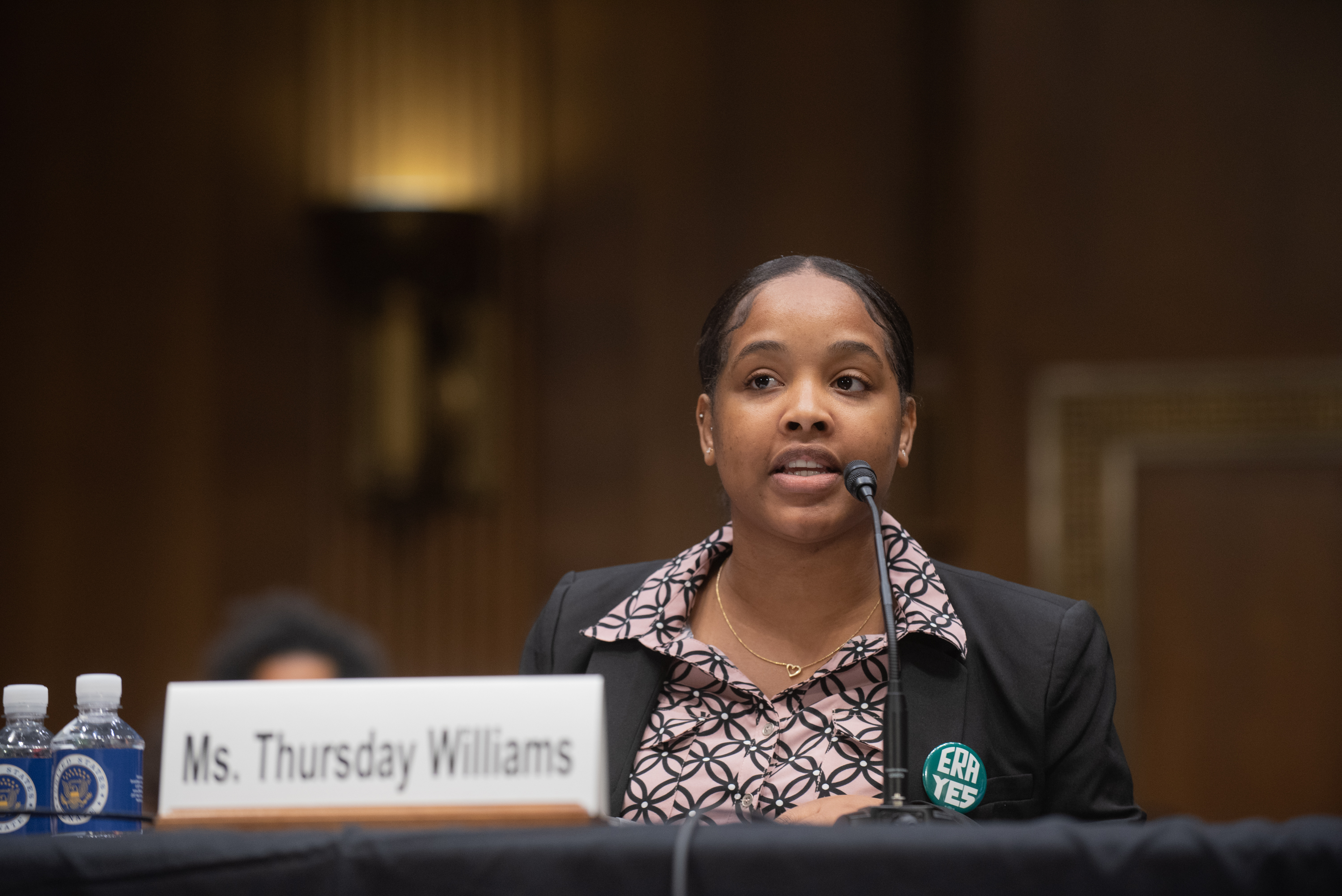
Thursday Williams, a college student, former cast member of What the Constitution Means to Me, and ERA Coalition Board Member was third to speak at the committee hearing. “Speaking for my generation, the Equal Rights Amendment holds a brighter future for us all.” Williams explains that her family moved to the U.S. seeking the American dream of education and productivity, and her mission is to fulfill that dream. She fell in love with the U.S. Constitution in high school, and admires most how brilliantly it was designed to adapt to the ever-changing minds of the people. She continued to explain that it was not so long ago that she would not have had the opportunity to stand on a stage in a major production as a Black woman, yet here she is defending a Constitution that once considered her 3/5s of a person. In 2023, it is still not yet explicit that she is equal to a man; that all people should be treated equally regardless of sex. This document was not written for her, and was not written for any women and it needs to be amended, Williams reminded attendees.
Williams stated that she will continue to fight for her rightful place in the Constitution, and appeared today to fight for the amendment that would finally guarantee her equality. As she cautiously enters the next phase of her life, transitioning from college to work at a firm – she knows that the system is stacked against her as a woman of color; she is more likely to be offered less money than her male counterparts, looked over for raises and promotions, and will have to work twice as hard for the same recognition. It is important for her and her peers and future generations to have the Equal Rights Amendment in the Constitution as a tool to fight discrimination. She asks, “how can we be the beacon of freedom and democracy we claim to be if we do not declare that sex discrimination contradicts the American Dream?” It is time we stop disappointing future generations, Williams concluded.
“How can we be the beacon of freedom and democracy we claim to be if we do not declare that sex discrimination contradicts the American Dream?”
Thursday Williams
Professor Elizabeth Price Foley, Professor of Law at Florida International University College of Law, another ERA opponent, was fourth to speak at the hearing, and stated that she would stick to the laws themselves in her testimony. She argued that Congress allows for the mode of passage and ratification of Amendments, and once decided is binding, despite having the ability to add and extend time limits as done in previous sessions of Congress.

Pro-ERA witness Kathleen Sullivan, Senior Counsel at Quinn Emanuel, Urquhart & Sullivan, LLP was the fifth and final speaker at the hearing. She stated that she wanted to make three primary points in her address today.
“[Congress] has the power to remove the deadline that was imposed in 1972 and extended in 1978.”
Kathleen Sullivan
